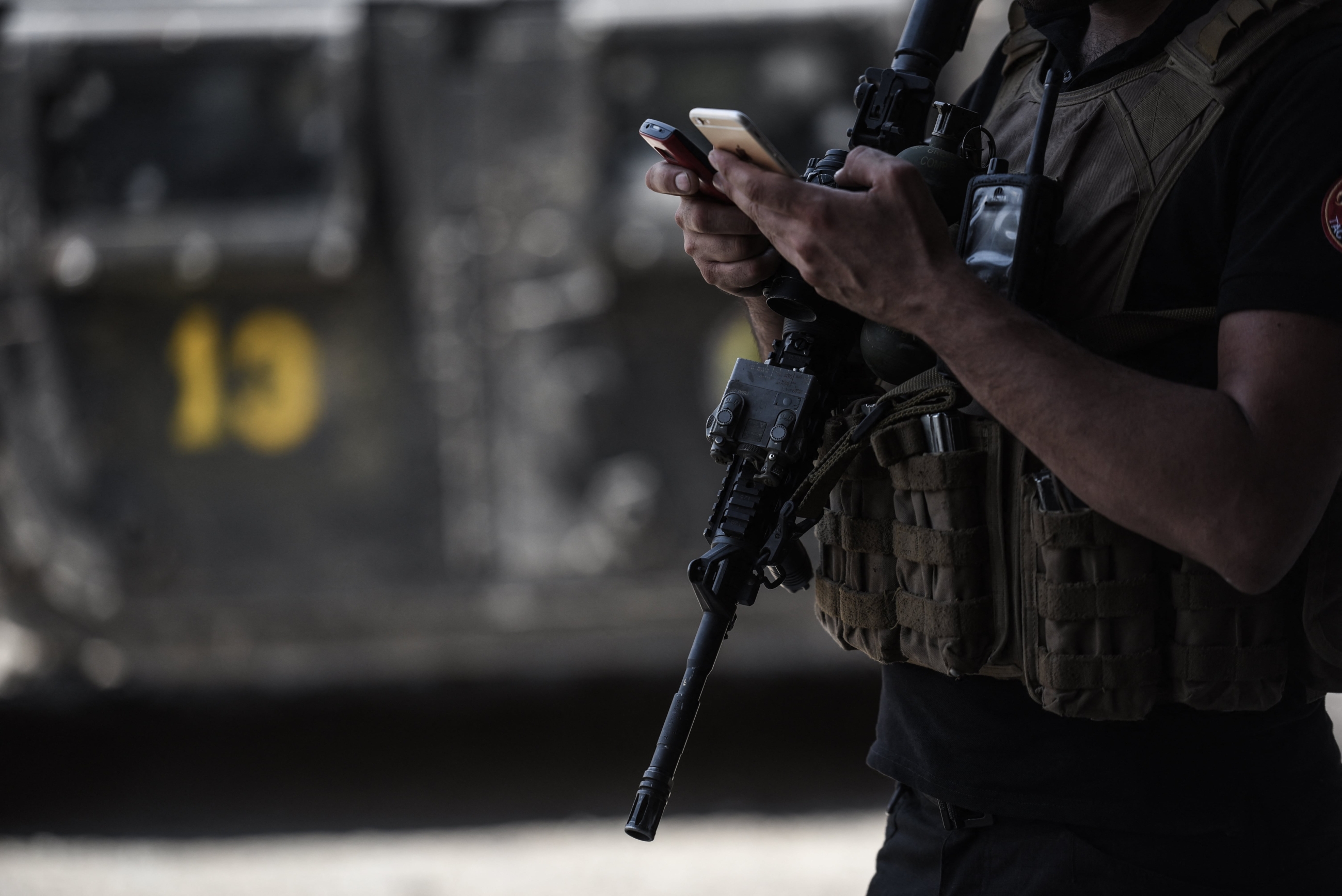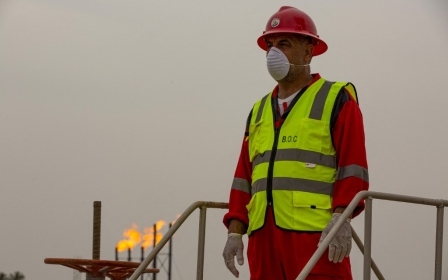Iraq: Ericsson employees may have paid bribes to Islamic State

Employees of telecoms company Ericsson may have bribed Islamic State officials in Iraq, the company's CEO said on Wednesday.
The comments by Borje Ekholm caused the Swedish giant's share price to tumble in opening trading on the Stockholm stock exchange.
Speaking to Swedish financial daily Dagens Industri, Ekholm said people linked to his organisation had "paid for road transport through areas controlled by terrorist organisations, including ISIS.
"With the means we have, we haven't been able to determine the final recipients of these payments," he added.
The comments came in the wake of an internal investigation at Ericsson, as well as enquiries by state broadcaster SVT and the International Consortium of Investigative Journalists (ICIJ), which according to the company found "serious breaches of compliance rules and the company's code of business ethics" with regards to vendors, employees and suppliers in Iraq between 2011 and 2019.
A statement by the company said it had found "evidence of corruption-related misconduct" which included "making a monetary donation without a clear beneficiary; paying a supplier for work without a defined scope and documentation; using suppliers to make cash payments; funding inappropriate travel and expenses; and improper use of sales agents and consultants.
"Payment schemes and cash transactions that potentially created the risk of money laundering were also identified."
The investigation also found violations of Ericsson's internal financial controls, as well as conflicts of interest and non-compliance with tax laws.
The statement said several employees left the company as a result of the investigation, which had faced internal obstruction, alongside other disciplinary actions. However, it added that "the investigation could not identify that any Ericsson employee was directly involved in financing terrorist organisations".
Probes into bribery
Ericsson released the statement following media enquiries into its internal investigation in 2019 about its conduct in Iraq, which was triggered by "unusual expense claims" from 2018.
However, the ICIJ said on Tuesday that some questions put to Ericsson by the leading investigative media group and SVT still remain unanswered.
"Despite the statement from Ericsson, the company has not addressed specific questions put to it by our journalists in relation to a wide range of corrupt behaviour in connection to its business in Iraq and elsewhere," ICIJ said, adding that a final report and their findings on the matter will be released soon.
SVT reported that Ericsson had addressed the violation of rules and business ethics in its statement. These included payments to intermediaries and the use of alternate transport routes in connection with circumventing Iraqi Customs, when IS ruled some of the transport routes in northern Iraq.
'Financing terrorism is completely unacceptable and something we do not allow at all'
– Borje Ekholm, CEO, Ericsson
Ekholm, Ericsson's CEO since January 2017, said the company had spent “considerable resources trying to understand this as best we can" and had disclosed its findings with US officials.
"Financing terrorism is completely unacceptable and something we do not allow at all," he added.
In December 2019, Ericsson agreed to pay penalties totalling $1bn to settle a series of probes into bribery and corruption in Asia and the Middle East, after it reached an agreement with the US Department of Justice (DoJ).
The probes, separate from the recent Iraqi one, were into Ericsson's conduct of bribing officials in countries such as China, Vietnam, Djibouti, Indonesia and Kuwait, over a period of time.
Mads Rosendal, an analyst with Danske Bank Credit Research, told Reuters that if the DoJ finds reason to look into the recent bribery allegations in Iraq, Ericsson may end up facing large fines.
"We believe the key is what may come out of the investigation and if there is any reason for authorities to have a closer look," Rosendal said.
Bloomberg reported that Ericsson shares dived by almost 14.5 percent on Wednesday afternoon, following the release of its statements on Tuesday evening - the company's biggest fall in a day since July 2017.
IS resurgence
IS has not regained territory since 2019, but a recent prison break attempt in Hasakah, northeast Syria, was yet another sign that the group still has weapons and loyal combatants.
In the nearby al-Hol camp, where Kurdish authorities hold women suspected of being IS members and their children, the group has assassinated detainees, beheading several people.
Eleven Iraqi soldiers were killed in January in an overnight attack by IS fighters against their base in Iraq's eastern province of Diyala.
The US State Department’s envoy to the US-led coalition battling the group warned last July that deteriorating economic conditions in Iraq and Syria are paving the way for IS to reconstitute.
This article is available in French on Middle East Eye French edition.
Middle East Eye delivers independent and unrivalled coverage and analysis of the Middle East, North Africa and beyond. To learn more about republishing this content and the associated fees, please fill out this form. More about MEE can be found here.





